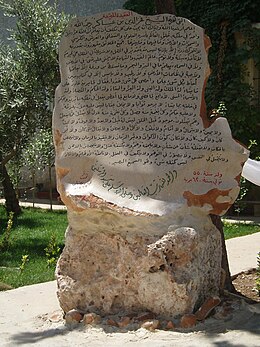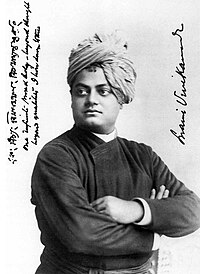-
Use Cases
-
Resources
-
Pricing
Ancient Philosophy
Western philosophy originates in Ancient Greece
600 BC - 599 BC
% complete
The roots of Western philosophy can be traced back to the 6th century BCE in Ancient Greece, with the pre-Socratic philosophers laying the foundation for the development of philosophical thought in the Western world.
Image source: A History of Western Philosophy

Daoism founded by Laozi
600 BC - 599 BC
% complete
Daoism was founded by Laozi in the 6th century BCE and examined how humans can live in harmony with nature by following the Dao or the natural order of the universe, contributing to the development of ancient Chinese philosophy.
Image source: Taoism

Buddhism introduced to China
1 CE - 99 CE
% complete
Buddhism was introduced to China in the 1st century CE, leading to the diversification of Buddhist thought and its integration with indigenous Chinese philosophical traditions.
Image source: Chinese Buddhism

Traditional Japanese philosophy assimilates ideas from different traditions
500 - 699
% complete
Traditional Japanese philosophy assimilated and synthesized ideas from different traditions, including the indigenous Shinto religion and Chinese and Indian thought, shaping the unique philosophical landscape of Japan.
Medieval Philosophy
Medieval period begins
400 - 499
% complete
The medieval period in philosophy began in the 5th century CE, characterized by the integration of Christian thought with the philosophical traditions of antiquity and the development of scholasticism.
Image source: Medieval philosophy

Avicenna develops comprehensive philosophical system
980 CE - 1037 CE
% complete
Avicenna (980–1037 CE) developed a comprehensive philosophical system to provide a rational understanding of reality encompassing science, religion, and mysticism, influencing Islamic and Western philosophical traditions.
Image source: Avicenna

Neo-Confucianism developed
1000 - 1099
% complete
Neo-Confucianism developed in the 11th century CE, integrating Confucian thought with Buddhist and Daoist elements and becoming an influential school of thought in East Asian philosophy.
Image source: Neo-Confucianism

Ramanuja founds Vishishtadvaita Vedanta
1017 CE - 1137 CE
% complete
Ramanuja (1017–1137 CE) founded the school of Vishishtadvaita Vedanta and argued that individual entities are real as aspects or parts of the underlying unity, influencing Indian philosophical thought.
Image source: Ramanuja

Al-Ghazali criticizes reason's understanding of reality and God
1058 CE - 1111 CE
% complete
Al-Ghazali (1058–1111 CE) was a strong critic of the idea that reason can arrive at a true understanding of reality and God, challenging the role of rationalism in philosophical and theological discourse.
Image source: Al-Ghazali

Modern and Contemporary Philosophy
Philosophy enters English language
1175 CE
% complete
The word 'philosophy' entered the English language primarily from Old French and Anglo-Norman starting around 1175 CE, marking the linguistic integration of philosophical concepts into English-speaking cultures.
Latin American philosophy during the colonial period
1550
% complete
During the colonial period, starting around 1550, Latin American philosophy was dominated by religious philosophy in the form of scholasticism, reflecting the influence of European intellectual traditions in the region.
Image source: Latin American culture

Modern period begins
1600 - 1699
% complete
The modern period in philosophy started in the 17th century, marked by significant shifts in philosophical thought, including the Enlightenment and the rise of empiricism and rationalism.
Image source: Modern philosophy

Several attempts to develop comprehensive systems of philosophy
1800 - 1899
% complete
In the 19th century, there were several attempts to develop comprehensive systems of philosophy, such as German idealism and Marxism, reflecting the diverse intellectual landscape of the time.
Swami Vivekananda advocates unity of religions
1863 CE - 1902 CE
% complete
For example, Swami Vivekananda (1863–1902 CE) used the teachings of Advaita Vedanta to argue that all the different religions are valid paths toward the one divine, contributing to the global dialogue on religious and philosophical pluralism.
Image source: Swami Vivekananda

Influential developments in 20th-century philosophy
1900 - 1999
% complete
The 20th century witnessed influential developments in philosophy, including the emergence and application of formal logic, the focus on the role of language, pragmatism, and movements in continental philosophy like phenomenology, existentialism, and post-structuralism.
Expansion of academic philosophy
1900 - 1999
% complete
The 20th century saw a rapid expansion of academic philosophy in terms of the number of philosophical publications and philosophers working at academic institutions, contributing to the diversification and globalization of philosophical thought.
The Kyoto School emerges
1900 - 1999
% complete
The Kyoto School emerged in the 20th century, integrating Eastern spirituality with Western philosophy in its exploration of concepts like absolute nothingness (zettai-mu), place (basho), and the self, contributing to the development of modern Japanese philosophical thought.
Image source: Kyoto School

Epistemology questions addressed
1900 - 1999
% complete
Some of the questions addressed by epistemologists include 'By what method(s) can one acquire knowledge?'; 'How is truth established?'; and 'Can we prove causal relations?', reflecting the enduring inquiries of epistemology in the 20th century.
Renaissance and Early Modern Philosophy
Renaissance period starts
1300 - 1399
% complete
The Renaissance period, starting in the 14th century, witnessed a renewed interest in schools of ancient philosophy, particularly Platonism, and marked a transition from the medieval to the early modern era of philosophy.
Image source: Renaissance philosophy

Neo-Confucianism influences Edo period
1500 - 1599
% complete
Neo-Confucianism became an influential school of thought in the 16th century and the following Edo period, prompting a greater focus on language and the natural world in Japanese philosophy.
Image source: Edo period

Mulla Sadra's influence in subsequent period
1571 CE - 1636 CE
% complete
Mulla Sadra (1571–1636 CE) is often regarded as one of the most influential philosophers of the subsequent period, contributing to the development of Islamic and Persian philosophical traditions.
Image source: Mulla Sadra

Bhakti movement popularized
1600 - 1799
% complete
Ramanuja also helped to popularize the Bhakti movement, which taught devotion toward the divine as a spiritual path and lasted until the 17th to 18th centuries CE, shaping religious and philosophical practices in India.
Image source: Bhakti movement

Philosophiæ Naturalis Principia Mathematica published
1687
% complete
An example of the usage of the word 'philosophy' is the 1687 book Philosophiæ Naturalis Principia Mathematica by Isaac Newton, which made significant contributions to the development of modern scientific and philosophical thought.
Image source: Philosophiæ Naturalis Principia Mathematica

Key Facts
- Philosophy originated in ancient Greece, with figures like Socrates, Plato, and Aristotle making significant contributions to the field.
- Medieval philosophy was greatly influenced by religious and theological debates, with figures like Thomas Aquinas and Augustine of Hippo playing key roles.
- The Renaissance and Enlightenment periods marked significant shifts in philosophical thought, with thinkers like Descartes, Kant, and Rousseau shaping modern philosophical discourse.
- Existentialism and phenomenology emerged as influential movements in the 19th and 20th centuries, challenging traditional philosophical perspectives.
- Contemporary philosophy encompasses a wide range of schools of thought, including analytic, continental, and feminist philosophy, addressing a diverse array of topics and issues.
Source
This Philosophy timeline was generated with the help of AI using information found on the internet.
We strive to make these timelines as accurate as possible, but occasionally inaccurates slip in. If you notice anything amiss, let us know at [email protected] and we'll correct it for future visitors.
Create a timeline like this one for free
Preceden lets you create stunning timelines using AI or manually.
Customize your timeline with one of our low-cost paid plans
Export your timeline, add your own events, edit or remove AI-generated events, and much more
Free
$
0
free forever
No credit card required.
Basic
$
10
/month
billed annually
Cancel anytime.
Pro
$
16
/month
billed annually
Cancel anytime.
Common Questions
Can I cancel anytime?
Yes. You can cancel your subscription from your account page at anytime which will ensure you are not charged again. If you cancel you can still access your subscription for the full time period you paid for.
Will you send an annual renewal reminder?
Yes, we will email you a reminder prior to the annual renewal and will also email you a receipt.
Do you offer refunds?
Yes. You can email us within 15 days of any payment and we will issue you a full refund.
What if I have more questions?
Check out our pricing docs or send us an email anytime: [email protected].